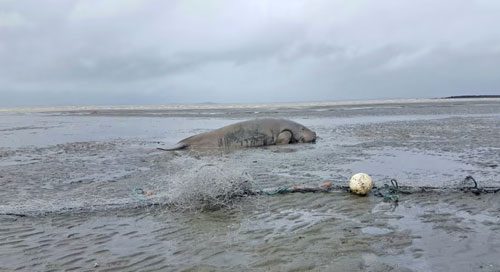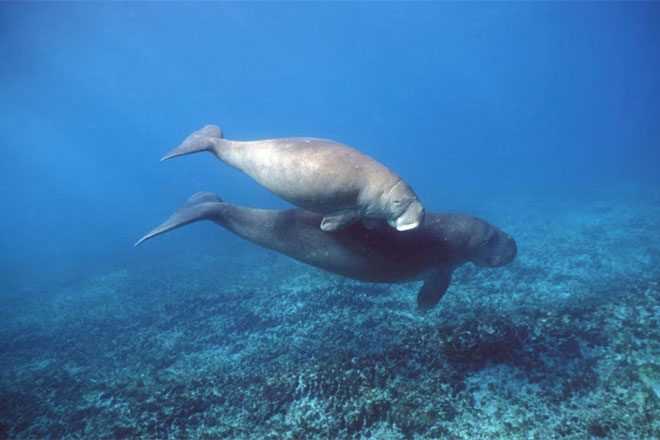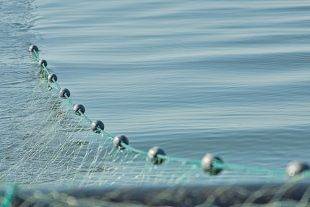The Albanese and Palaszczuk Labor Governments have announced critical funding to better protect threatened species that call the Great Barrier Reef home.
Over $160 million will be delivered to significantly reduce net fishing and other high risk fishing activities impacting the reef.
This includes ensuring the Great Barrier Reef is gillnet free by mid-2027.
Destructive gillnet fishing injures and kills threatened dugongs, turtles, dolphins and protected shark species.
As part of these reforms, the Albanese Government will request the Palaszczuk Government declares threatened hammerhead sharks a no-take species for commercial fishers within Queensland waters.
The funding will also be used to:
- Create net-free zones including in the northern third of the Great Barrier Reef and parts of the Gulf of Carpentaria to better protect threatened species that move between the reef and the gulf
- Accelerate implementation of the Sustainable Fisheries Strategy
- Introduce legislation to mandate the use of independent data validation on commercial fishing vessels to ensure we balance sustainable fisheries with protecting threatened species.
The Federal Labor government has wasted no time acting to protect our precious reef, including legislating more ambitious emissions reduction targets and investing more than $1.2 billion to protect and restore the Great Barrier Reef.

Federal Minister for the Environment and Water Tanya Plibersek said, “The Great Barrier Reef is one the most beautiful places on Earth.”
“We want to better protect it for our kids and grandkids.
“We know one of the most immediate threats to the health of the reef is unsustainable fishing practices.
“It causes damage throughout the reef, as threatened marine life such as dugongs, turtles and dolphins are caught in nets and drown,” Minister Plibersek said.
“The removal of gillnets in net-free zones on the reef has already helped boost local fish populations.
“We want to see this happen right across the reef.”
Queensland Minister for Environment Leanne Linard said, “The implementation of these new protections underscores the commitment of the Palaszczuk Government to ensure the reef’s long-term survival.”
“The Great Barrier Reef is home to thousands of species and holds immense cultural significance to Indigenous people of the Queensland coast and the Torres Strait, who have maintained a deep connection with these waters for thousands of years,” Minister Linard said.
“In keeping with its recognition as a United Nations Educational, Scientific and Cultural Organisation World Heritage site, the reef must be protected, not only for Queenslanders but for all the people of the world.”
Further information:
- All hammerhead sharks will be made a no-take species for commercial fishers in all Queensland waters, noting they are already no-take for recreational fishers
- Buy-out and remove all N2 and N4 licences by December 31, 2023
- Buy-out, remove and condition a limited number of N1 licences by December 31, 2023
- Phase out the remaining limited N1 licences to make the reef gillnet free by June 30, 2027
- With residual funds, protect the reef from other forms of commercial fishing through a voluntary commercial fishing licence buy-out
- Accelerate implementation of the Sustainable Fisheries Strategy by introducing legislation to mandate independent data validation
- Establish a ‘net-free north’ from Cape Bedford to the tip of Cape York
- Establish additional gillnet free zones in the Gulf of Carpentaria and other locations of high ecological value.
 Bush 'n Beach Fishing Magazine Location reports & tips for fishing, boating, camping, kayaking, 4WDing in Queensland and Northern NSW
Bush 'n Beach Fishing Magazine Location reports & tips for fishing, boating, camping, kayaking, 4WDing in Queensland and Northern NSW








